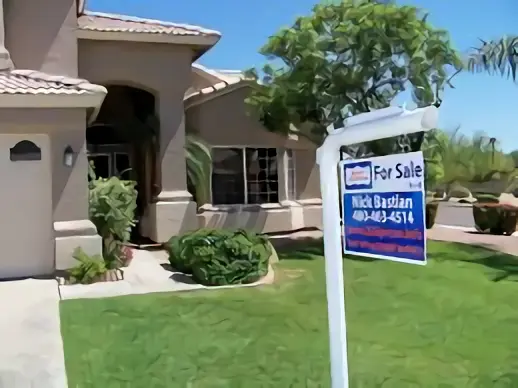All homes have an outlet on the real estate market if an appropriate sales strategy is carried out. When a home has not been sold for months and any calls, visits, or offers for its purchase are received, it is a sign that the price or sales techniques have not been adapted to the market context.
Not taking into account the relationship between supply and demand in the area, inflating the price of the home or not defining a sales strategy consistent with the market are some of the main reasons why a home does not arouse interest in buyers.
Discover, below, the complete list of reasons why your home may have been on the market for months without success and how you can reverse the situation.
1. Not having carried out a prior market study
Putting a home on sale involves more effort than hanging a “For Sale” sign. This is a complex process that requires the definition of a sales strategy that adapts to the market, so it is always necessary to previously analyze key parameters such as:
· The number of ads for homes for sale in the area
· The volume of people interested in buying a home in the area
· Average prices per square meter
· The value of similar properties in the area
· The features most sought after by potential buyers
· The state of the homes that will be your “competition”
Without a market study it is easier to make mistakes when selling an apartment. That is why it is the first thing you should do if you plan to advertise your home on the market to attract potential buyers.
2. Setting a selling price that is too high
The stagnation of a home is almost always due to the same problem: the sale price is out of market and the buyers know it. A value that is too high discourages interested parties looking for properties to buy in the area. They search daily for apartments for sale that fit their needs and criteria, so they know what the average prices are for homes with those characteristics.
If your home is overpriced in relation to other similar properties, the sales process will take longer and you could end up having to apply radical price reductions to get buyers’ attention.
That is why setting an appropriate price from the beginning not only attracts more interested parties, it also saves you time and generates a competition effect, in which several buyers can submit offers to close the sale, increasing the value of the property.
3. Not having defined a sales strategy
The advertising of the property, its presentation, the adaptation of the aesthetics for the sale, the negotiation. A sale requires the definition of a strategy for its promotion, so the most effective thing is usually to delegate this procedure to expert professionals.
Without a clear and coherent strategy with the market and the area, the process can become chaotic and less effective, excessively lengthening the time it takes to sell the property.
Remember that a home sale requires key steps such as creating the advertisement, preparing the mandatory documentation to sell an apartment, managing calls and visits to the property, resolving queries, handling negotiations with potential buyers.
4. Not adapting the home to the ideal buyer profile
Think that each home can be oriented towards an ideal buyer profile. For example, a one-bedroom apartment will not attract families with several children or a residence near the beach could attract the attention of both national and international buyers.
Analyze your property and focus the sale on the target buyer, adapting the property to that specific profile. This can range from making repairs and improvements to adapt the home to highlighting key features in the description and photographs of the property.
Understand who is looking for homes like yours to know what they are specifically looking for. You can make your home become an irresistible option for demand.
5. The property advertisement could have “burned”
If several months have passed and the sale ad for your property is still active on real estate portals, you run the risk of “burning the house down.” This is a serious symptom that indicates that potential buyers have lost interest, generating a loss of value on the property.
